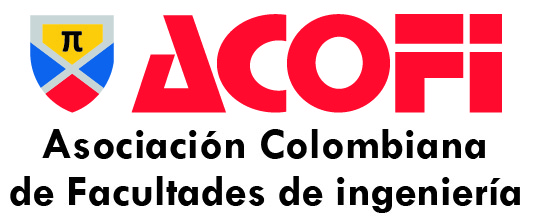Proposal of a learning tool for introduction to petroleum engineering subject and recommendations for modification of petroleum engineering curricula in Colombian universities
DOI:
https://doi.org/10.26507/rei.v15n30.1084Keywords:
learning, curriculum, competence, petroleum engineeringAbstract
A learning tool is proposed from the matrix of competences for graduating engineers presented by SPE Talent Council in order to provide a consistent instrument for teaching the subject of Introduction to Petroleum Engineering. In addition, this learning tool is used to analyze current curricula of petroleum engineering in the main colombian universities and recommend some adjustments to improve the programs and enhance the professional skills and the expectations alignment of future engineers.
A more condensed and visual perspective of the SPE Graduate Matrix is presented. The most important features of the learning tool based on the prime competences required by oil and gas industry are shown, as well as its potential use for standardizing the teaching of the subject of introduction to petroleum engineering. In addition, new trends of knowledge sets such as soft skills, unconventional reservoirs, and data science are discussed.
Based on the previous analyses, a comparative chart is built to assess the current content of petroleum engineering curricula in Colombian universities and several recommendations are proposed in order to achieve the required level in the professional profiles of future petroleum engineers and to guarantee the expectations alignment of these new professionals. In general terms, there is a prominent need for including courses on offshore technologies, field operations, data science and applied statistics and economics to strength the current curricula in Colombia.
Downloads
References
British Petroleum. BP Energy Outlook 2019. Available on: https://on.bp.com/2GrPIWX.
I. Ershaghi & D. Paul, The Changing Shape of Petroleum Engineering Education. SPE Annual Technical Conference and Exhibition, 2017.
E. Holderby & M. Van Domelen, Advancing Multidisciplinary Training and Development for Young Professionals in the Oil and Gas Industry. SPE Annual Technical Conference and Exhibition, 2015.
D. Mathieson, D. Meehan & J. Potts, The End of Petroleum Engineering as We Know It, SPE Middle East Oil and Gas Show and Conference, 2019.
Blasingame T., SPE Talent Council, The SPE Technical Knowledge for Graduating Engineers. (2011). Available on: https://www.spe.org/training/docs/graduating_matrix.pdf
Society of Petroleum Engineers. SPE Competency Management Tool. https://www.spe.org/training/cmt/
T. Aggour, B. Donohue & D. Donohue, Competency Framework for Petroleum Engineering University Graduates, SPE Annual Technical Conference and Exhibition, 2015.
C. Temizel, T. Tuna, B. Jia, D. Putra & R. Moreno. A Practical Petroleum Engineering Toolkit. SPE Kuwait Oil & Gas Show and Conference, 2017.
J. Bryant, G. Salama & M. Fahes. Benefits of Freshman Engineering Projects for Petroleum Engineering Students. SPE Annual Technical Conference and Exhibition, 2010.
T. Aggour, T. Donohue & D. Donohue, Modernizing Petroleum Engineering Education: A New Global Online Petroleum Engineering University Serving all Universities, SPE Annual Technical Conference and Exhibition, 2015.
A. Jain, A. & K. Ogle, A Competency Management Tool for SPE Members, Journal of Petroleum Technology, 67(01), pp.68-72, 2015.
Y. Dadmohammadi, et al, Integrating Human Factors into Petroleum Engineering's Curriculum: Essential Training for Students, SPE Annual Technical Conference and Exhibition, 2017.
Fundación Universidad de América, Official web page [consulted on april 26th, 2019]. Available at: http://www.uamerica.edu.co/programas-academicos/pregrado/ingenieria-de-petroleos/
Universidad Industrial de Santander, Official web page [consulted on april 26th, 2019]. Available at: https://www.uis.edu.co/webUIS/es/academia/facultades/fisicoQuimicas/escuelas/ingenieriaPetroleos/programaAcademicos/ingenieriaPetroleos/planEstudios.html
Universidad Nacional de Colombia-Sede Medellín, Official web page [consulted on april 26th, 2019]. Available at: https://minas.medellin.unal.edu.co/formacion/pregrado/ingenieriadepetroleos
Universidad Surcolombiana, Official web page [consulted on april 26th, 2019]. Available at: https://www.usco.edu.co/es/estudia-en-la-usco/programas-pregrado/facultad-de-ingenieria/ingenieria-de-petroleos/
Downloads
Published
How to Cite
Issue
Section
License
Total or partial reproduction of the documents published in the journal is authorized only when the source and author are cited.
| Article metrics | |
|---|---|
| Abstract views | |
| Galley vies | |
| PDF Views | |
| HTML views | |
| Other views | |









